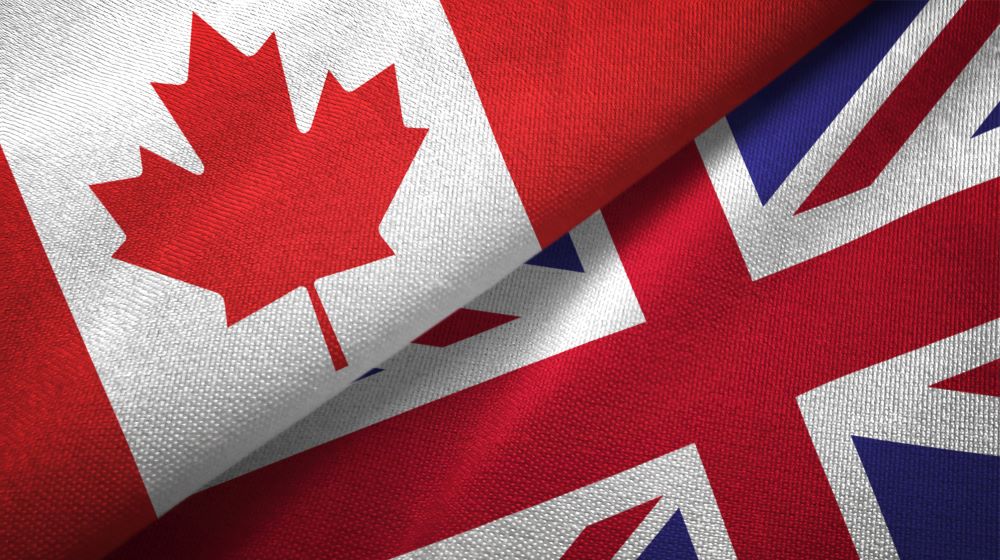
The UK and Canada have launched formal negotiations for a new “21st Century version of a free trade agreement”, international trade minister Anne-Marie Trevelyan said today (24 March).
Her comments come shortly after US Trade Representative Katherine Tai said that the US was not prioritising negotiations for its own bilateral deal with the UK, calling such arrangements “a very 20th century tool”.
Fresh terms
The deal will build on the UK-Canada Trade Continuity Agreement that maintained the preferential trade terms that the UK previously had with Canada as a former member of the EU.
It will “go further than ever before in areas like innovation, digital, data, the environment and women’s economic empowerment,” the Department for International Trade has announced.
‘Transformative’ deal
Speaking at a press conference launching the talks in Ottawa, on her first official visit to Canada, Trevelyan said the two countries will be “working at pace to get towards a deep and transformative trade deal”.
“We’ll be welcoming the Canadian delegation to London next week to get stuck into a wide number of chapter discussions”, she said.
“We’re both focussed on some key areas of what I would call a 21st Century version of a free trade agreement,” she added.
She was speaking alongside Canadian international trade minister Mary Ng.
Agriculture
One of the potential stumbling blocks in the talks could be agricultural trade, with farming industry bodies in the UK having previously raised concerns about the government’s negotiations for deals with Australia and New Zealand.
A ban on hormone-treated beef imports into Britain has already been raised as an issue, with Canada recently asking “probing questions” about it during the UK’s talks to join the Comprehensive and Progressive Agreement for Trans-Pacific Partnership (CPTPP).
In response to a question about the ban, Ng said that her message to all markets is that she is keen to “sell brand Canada” and that “the high quality of our beef, beef products and producers is second to none”.
Origin
Another challenge for British negotiators could be maintaining the origin rules of the current continuity agreement, which currently benefit UK traders.
According to trade policy expert David Henig, the current deal includes “a short period” in which UK goods can qualify for zero tariffs even if most of their content is from the EU.
He said it would be possible for this to be extended in a new deal, but that this would be “unusual”.
UK firms could be left with a “marginal worsening of trade conditions” if goods containing significant EU content do not qualify for preferential tariffs, Henig tweeted.
UK-Canada trade
According to government statistics, Canada was the UK’s 14th largest trading partner in the four quarters preceding the end of Q3 2021, accounting for 1.8% of total UK trade in that period.
Total trade between the UK and Canada was worth £22bn, an increase of 20.5% or £3.8bn on the same period in 2019-2020.
UK imports were worth £10.1bn, with goods valued at £8bn and services at £2.1bn. Exports the other way were worth £12bn, with goods valued £6.1bn and services £5.9bn.
The top five goods exports to Canada were non-ferrous metals, crude oil, cars, aircraft and medicinal and pharmaceutical products.
The UK’s major imports from Canada include mechanical power generators, metal ores and scrap, inorganic chemicals, wood and cork.



